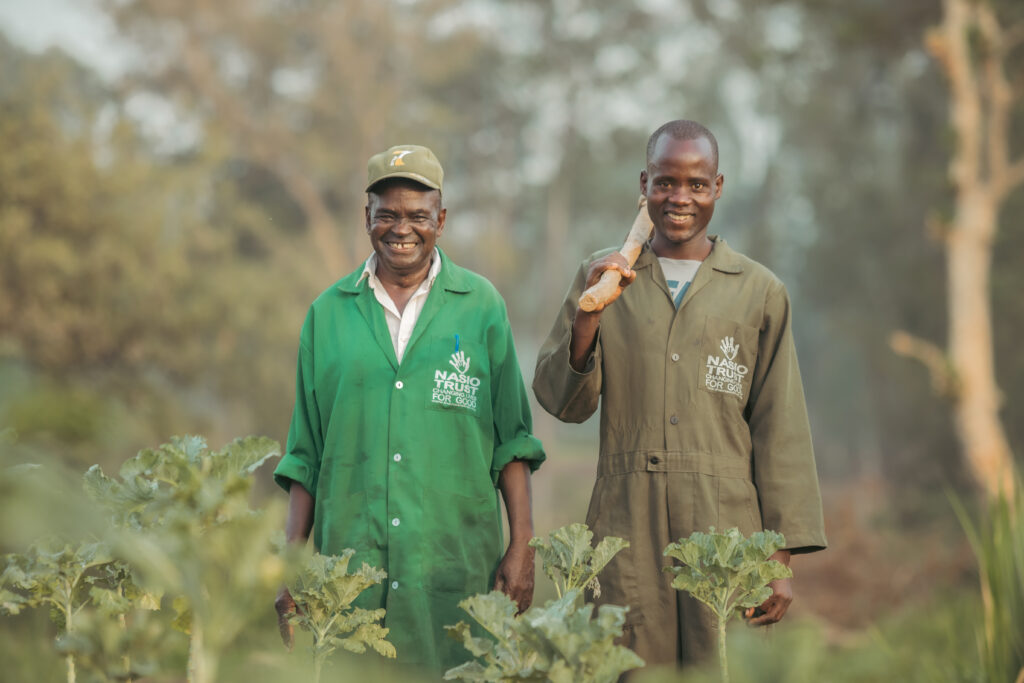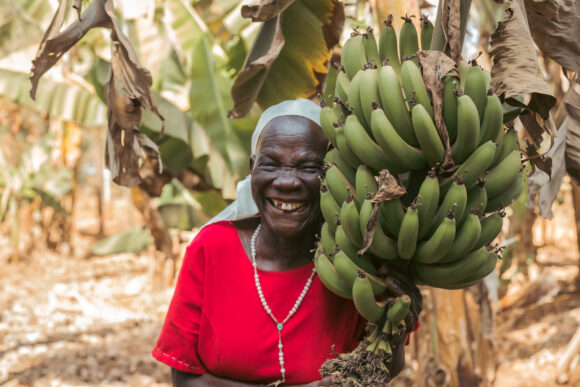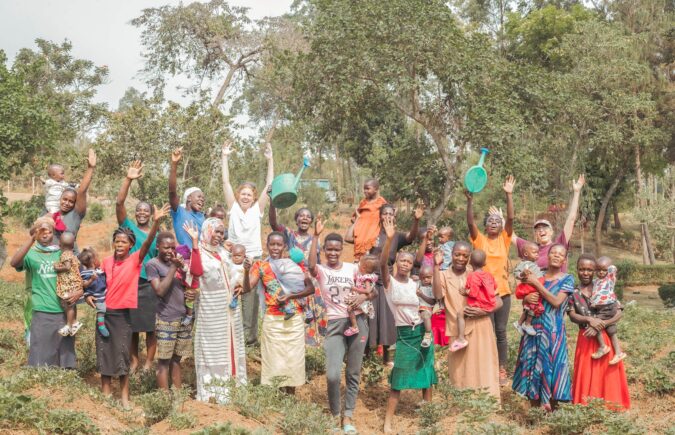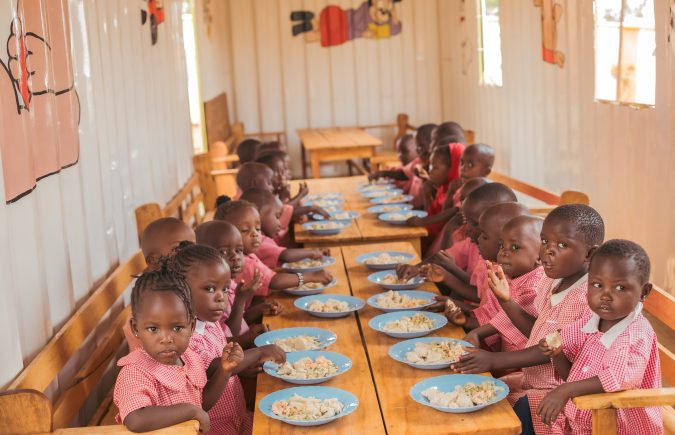Regenerative Agriculture: Building Food Security and Climate Resilience
Combatting the Climate Crisis and Increasing Food Insecurity
Land degradation in Kenya, driven by climate change, population pressure, and monoculture farming, has severely reduced soil fertility and cut agricultural yields by over a third this millennium. In Mumias West, once fertile land is dominated by sugarcane monocultures, leaving little space for diverse food crops. Many households—over 16% living in absolute poverty—cannot meet basic food needs, and small landholdings mean few can grow enough to feed themselves. Regenerative agriculture offers a vital solution, and grassroots organisations like the Nasio Trust are uniquely placed to lead change in these vulnerable communities.
In Kakamega County, smallholder farmers cultivate, on average, less than an acre of land, often relying on maize monoculture for survival. This practice has led to:
- Declining soil fertility due to overuse and poor land management.
- Increased food insecurity, with households unable to meet basic dietary needs.
- Vulnerability to climate change, including erratic rainfall and drought.
- Youth unemployment and lack of interest in farming.
- Limited market access and poor pricing, leaving farmers trapped in a cycle of low productivity and poverty.
The Nasio Trust’s agricultural programmes address this by equipping farmers with climate-resilient techniques
Our Approach
The Nasio Trust’s agricultural programmes address this by equipping farmers with climate-resilient techniques — including regenerative agriculture — to strengthen food security and sustainability. We are also empowering farmers by building their skills, access to microfinance and livestock.
Current Programmes
Through our current community initiatives, we support 2,000 farmers to grow maize, their staple crop, more sustainably. Alongside providing farm inputs, we promote income diversification to boost household earnings.
Our goat farming initiative has already provided 65 households with an additional source of milk and income, contributing to a local circular economy. As a result of these programmes, supported farmers have increased both yields and incomes, reinvesting their profits into education, microfinance schemes, and small enterprises.
We are grateful to The World We Want and the Mohammed Bin Sultan Charitable Foundation for their long-term support in our mission to achieve lasting food security in the community.
Our next steps: Emphasis on Capacity Building and Evidence-Based Interventions
We are working with leading research and grassroots partners to strengthen local resilience to climate change and improve food security.
With the University of Reading, we are studying how shifting weather patterns affect our farmers and identifying the temperature and rainfall thresholds at which key crops — such as maize, cassava, and sweet potatoes — risk failure. These insights will guide targeted interventions to protect harvests and incomes.
We also work with UK-based Evidence for Development, using their innovative Household Economy Approach to assess community needs. A recent livelihoods survey revealed that 16% of households cannot meet their food requirements from their own production or income — underscoring the urgent need for our continued efforts to build food security and resilience.
In 2025/2026, we will launch a pilot programme introducing regenerative practices such as intercropping maize with high-value crops such as soya beans, sweet potatoes and cassava . This approach improves nutrition, restores soil health, and enhances resilience to climate pressures.




